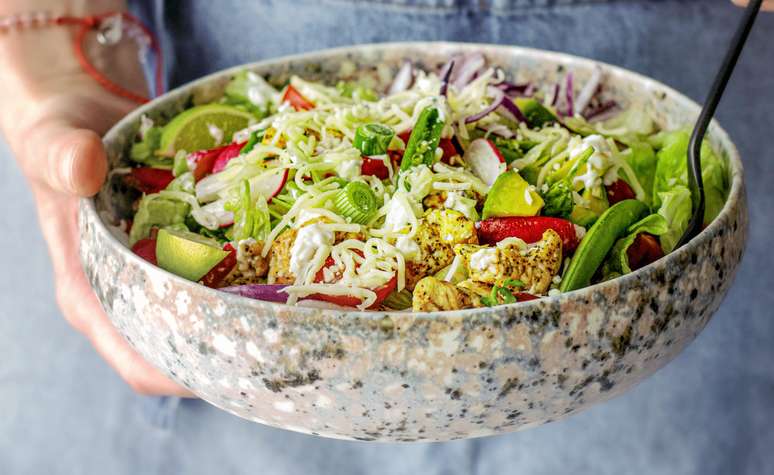In the research, the twins followed a healthy omnivorous or vegan diet, and the latter group showed significant improvements in cardiovascular health.
To the cardiovascular disease they are the main causes of death in Brazil and in the world. And the predisposition to these diseases is directly linked to lifestyle, especially nutrition, as several studies and research around the world have already underlined.
“Several studies have already shown, for example, that reducing meat consumption can help reduce the risk of cardiovascular disease, as it tends to contribute to the improvement of a number of markers associated with poor cardiovascular health, such as high cholesterol levels (LDL), insulin resistance and obesity”, explains nutritionist Marcella Garcez, director and professor of the Brazilian Association of Nutrology (ABRAN).
However, research attempting to confirm this relationship between diet and cardiovascular health tends to be hampered by differences in factors such as participants’ genetics, education, and other lifestyle habits that may also influence this issue. That said, a study published in November in the Journal of the American Medical Association confirmed that a vegan diet can improve cardiovascular health by studying this relationship in twins.
Study on the benefits of a vegan diet for cardiovascular health
The study included 22 pairs of identical twins, for a total of 44 healthy participants without cardiovascular disease. “The study of identical twins allows greater control of the factors that can influence the results, since, in addition to having the same genetics, these individuals grew up in the same environment and generally have similar lifestyles and habits”, underlines the doctor.

8 health benefits of the Mediterranean diet
Each pair of twins was divided into two groups: one assigned to eat a vegan diet and the other assigned to adopt an omnivorous diet. “Both diets were healthy and rich in vegetables, fruits, legumes and whole grains, as well as being low in sugars and refined carbohydrates. While the omnivorous diet included chicken, fish, eggs, cheese and other dairy products, the vegan diet was completely free of plant-based and without meat and other products of animal origin”, explains the expert.
In the first four weeks of the study, participants received meals at home, and in the other four, they prepared their own food, relying on a nutritionist to answer any questions about the diet. During this period, the twins were interviewed about their diet, as well as undergoing blood tests and weight checks at the beginning, middle and end of the study. As a result, the researchers observed, for example, a reduction in the average levels of LDL (bad) cholesterol, which, in the vegan group, went from 110.7 mg/dL to 95.5 compared to 118.5 mg/dL to 116.1 among omnivores.
“Elevated LDL levels are linked to increased cardiovascular risk due to cholesterol deposition in the arteries, which can lead to heart attacks and strokes. Ideally, LDL levels should be less than 100 mg/dL,” explains Dr. Marcella. The vegan group also experienced a 20 percent decrease in fasting insulin and lost about a pound more than the omnivores. “Like LDL cholesterol, insulin and body weight are also factors linked to cardiovascular health. Additionally, high insulin levels are a risk factor for developing diabetes.”
The study also demonstrated that it is possible to learn to prepare and consume a healthy plant-based diet to improve health in a short period of time, as 21 of the 22 participants assigned to the vegan diet completed the study and the greatest changes were observed in first four weeks.
“And you don’t need to adopt a strictly vegan diet overnight. Simply adding more plant-based foods to your diet, in addition to reducing the risk of cardiovascular disease and increasing longevity, can also provide benefits such as improved of the intestinal microbiota and the reduction in the shortening of telomeres, which is linked to the body’s aging process”, underlines the doctor. In the study, the top three things vegan participants did to improve cardiovascular health were: reducing saturated fat intake, increasing dietary fiber, and losing weight.

Lose weight and boost immunity: benefits of hibiscus tea
Finally, Marcella Garcez emphasizes that the study refers to healthy diets. So when transitioning to a plant-based diet, it’s important to be careful not to fall into traps, such as overconsumption of ultra-processed foods, including the so-called “meats of the future.”
“Many of these products obtained from plants to try to replicate a food of animal origin are considered ultra-processed foods, that is, they are industrial formulations manufactured from substances extracted or derived from other foods (in this case plants) and synthesized in the laboratory (colouring, flavourings, preservatives and additives). This processing is what makes these foods more pleasant to the taste and similar to the products they are intended to replace, but it is also what makes them less healthy like fresh ones, which, depending on the composition, they can increase the risk of certain health problems, such as obesity, cholesterol and cardiovascular disease”, warns the doctor.
According to her, the best solution for those who want to abandon animal products in a truly healthy way is to opt for homemade preparations of fresh plant-based foods. “Another precaution concerns the balanced and balanced consumption of all macronutrients, in particular proteins, since vegans should favor the combination, in general, of a cereal with a cereal to ingest all the essential amino acids (which the body is not able to synthesize), “he concludes.
Source: Terra
Ben Stock is a lifestyle journalist and author at Gossipify. He writes about topics such as health, wellness, travel, food and home decor. He provides practical advice and inspiration to improve well-being, keeps readers up to date with latest lifestyle news and trends, known for his engaging writing style, in-depth analysis and unique perspectives.







![Un Si Grand Soleil Preview: Episode Summary for Wednesday, October 29, 2025 [SPOILERS] Un Si Grand Soleil Preview: Episode Summary for Wednesday, October 29, 2025 [SPOILERS]](https://fr.web.img3.acsta.net/img/58/48/5848773b26761cb500901ca4a1395bb8.jpg)

